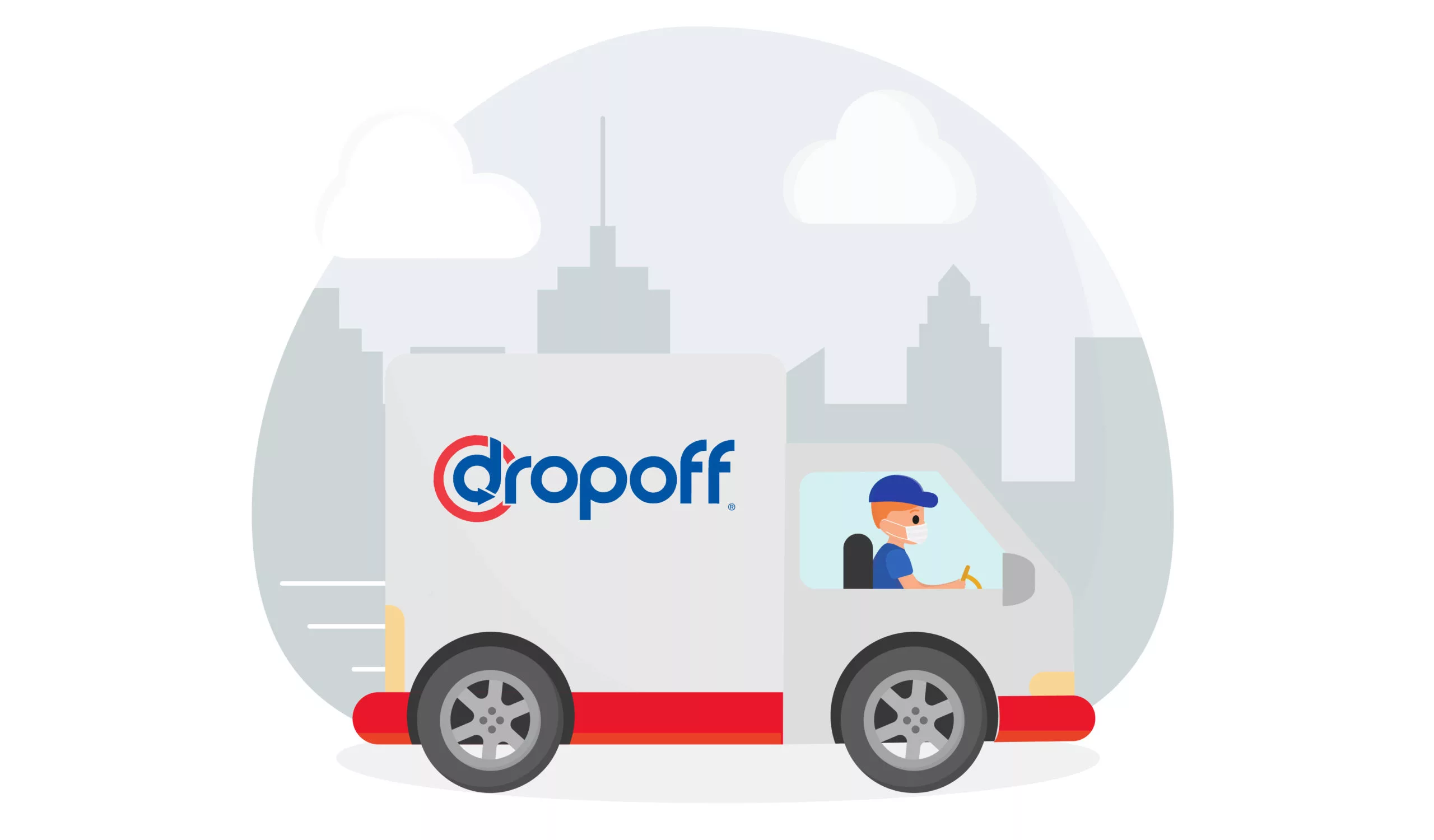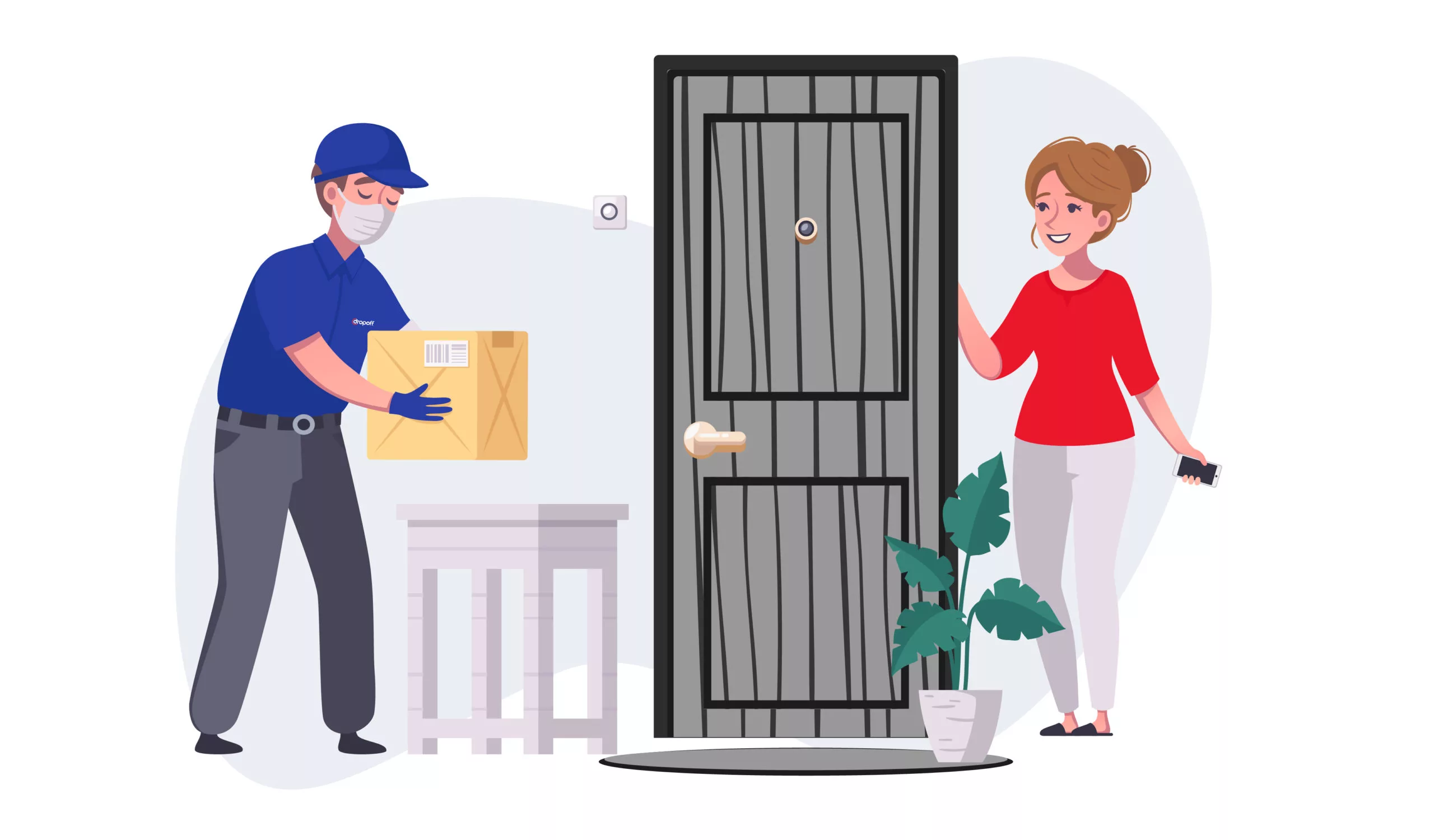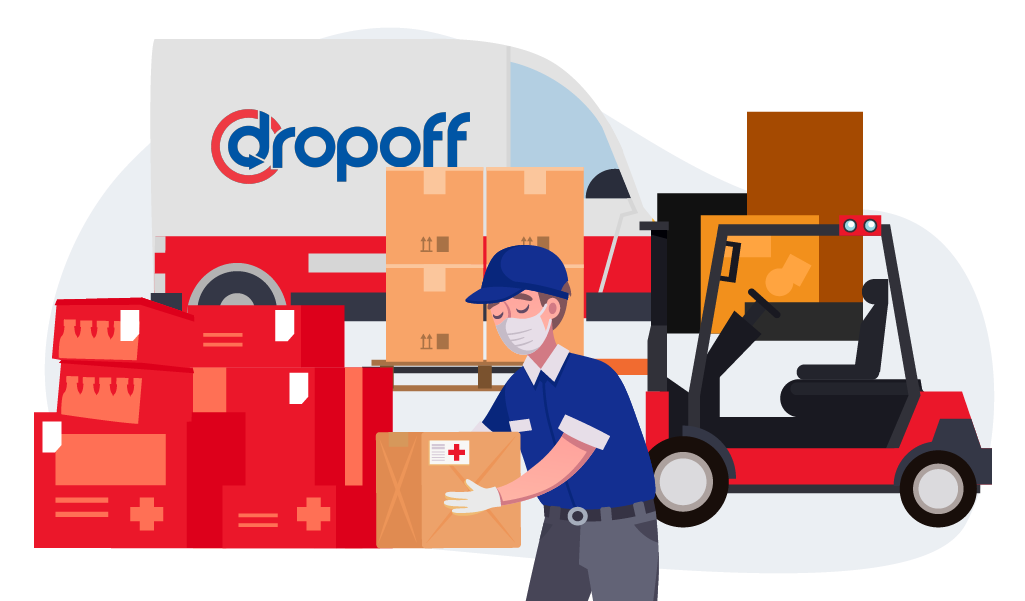Due Diligence Checklist for Logistics Companies

If you own a small courier company and want to sell it, you can look forward to the due diligence process.
Buyers will look into your business with a magnifying glass, so they know exactly what to expect before acquiring your company.
This article outlines the critical components of a logistics company’s due diligence process.
What Is the Due Diligence Process?
Due diligence means thoroughly looking into a company and its financial records before getting involved.
Who Needs a Due Diligence Check?
When a company is interested in merging with or acquiring another, they’ll do research beforehand. They’ll look into the company’s business partners and suppliers to make sure they’re up to compliance standards.
The buyer in an M&A deal usually hires experts to perform due diligence. This includes accountants, investment bankers, and lawyers.
Here’s how Dropoff successfully acquired Rightaway Delivery, Inc.
Why Is It Necessary?
It’s mostly done so companies can protect themselves. For instance, it helps them comply with sanctions and legislation on money laundering, bribery, and corruption.
Three primary benefits of the due diligence process:
- It prevents corruption and money laundering
- It prevents unnecessary financial risks
- It prevents creating bad reputations
How Is the Due Diligence Process Different for Logistics and Courier Companies?

The due diligence process is especially crucial for logistics and last-mile delivery companies. These businesses deal with so many high-value shipments. So all the parties involved must be legitimatized and on the same page.
The process involves many activities, from reviewing financial records to conducting background checks.
A Comprehensive Due Diligence Checklist

Legal Due Diligence Acquisition Checklist
Collecting legal due diligence is a thorough process. The buyer wants information on your company’s legitimacy and potential. They want to know about lawsuits, permits, licenses, and agreements.
Corporate Structure
- Organizational chart showing the different parts of the company.
- Joint ventures, partnerships, and other agreements where two or more people share the profits.
- All information about the board, shareholder, and member gatherings.
Management
- Any transactions between related parties, including the procedures for reviewing and approving those transactions.
- Professional biography for each team member and all key employees.
- Professional biography for each board member.
Capital Structure
- Analysis showing the number of outstanding shares.
- Information regarding every private equity offering.
- A summary of any warrants, convertible notes, and rights that give the holder equity.
- Copies of any debt instruments that are outstanding.
Legal
- A summary of material litigation.
- A list of all required permits, licenses, and other authorizations and any necessary export control permissions.
- Copies of legal documents that limit or burden ownership of assets.
- Agreements with terms such as covenants and insurance.
- A brief description of the last-mile delivery company’s compliance program and copies of all policies, procedures, and other related documentation.
Real Estate
- A list of addresses and descriptions of each property development, office, warehouse, or other facility operated or maintained by the business.
- A summary of all the deeds done for the real estate owned by the business, including copies of any related title papers, title insurance policies, appraisals, and surveys.
Commercial Due Diligence Acquisition Checklist
This part of due diligence helps the potential buyer understand how commercially sound your logistics company is. It looks at how appealing your company is to customers and competitors. This report should include top customers, competitors, and commercial policies.
Suppliers
- A list of the top 15 vendors for the past three years.
- A summary of the policies and procedures created when dealing with a new supplier or contractor.
Marketing
- Any strategic plans, marketing materials, or advertisements that’s ever been created for the business.
- A summary of anticipated new goods and product improvements.
- Copies of advertising and marketing materials, including brochures, presentations, and sales sheets.
- A comprehensive list of marketing risks and opportunities.
Commercial Policies
- Copies of policies and procedures for pricing, credits, returns, warranties, etc.
Customers
- A list of the top 25 customers for the past three years.
- A list of customers that are no longer doing business with the company.
- All customer contracts are in an easy-to-access format.
- All material contracts with terms remaining longer than one year.
Financial Due Diligence Acquisition Checklist

When doing due diligence in mergers and acquisitions, financial information is so important. The buyer wants to know your company’s financial stability and performance in the market. This helps them decide if your courier business is worth buying.
Accounting
- A clear explanation of any off-balance sheet items, liabilities, or obligations.
- Any incidents not disclosed or referred to in the financial statements.
- An itemized list of all prepaid expenses and deposits.
- Unaudited financial statements.
Finance
- A list of any cash management controls and procedures.
- Investment policies.
- Hedge policies, as well as copies of any related contracts or instruments.
- Documentation explaining the company’s inventory costing system and other procedures and policies connected to inventory.
- Debts, agreements, or arrangements that are expected to result in a loss for the company.
- Copies of most recent bank settlements and bank statements.
Operations
- A summary of all capital expenditure projects.
- A summary of all planned capital expenditures in the next 12 months.
- A list of all equipment and assets and a copy of the latest physical inventory.
Insurance
- A general overview of every current insurance coverage and copies of all related policy papers.
- A rundown of all claims made against any insurance policy.
Human Resources Due Diligence Acquisition Checklist
During mergers and acquisitions, the two companies’ cultures must blend well. The acquired shipping company should provide information on current employees and policies. This will help create a new company plan to merge the two cultures effectively.
A business acquisition due diligence checklist within HR typically looks into employee contracts, agreements, and a summary of current recruitment initiatives.
Human Resources Agreements
- Copies of all employment and severance agreements showing which employees are affected by the transaction.
- Copies of any consulting agreements.
- Copies of compensation agreements.
- Copies of non-competition, nondisclosure, or similar agreements.
- A description of any current recruiting efforts.
Benefits
- A comprehensive list of all benefits and a company’s compensation policy copy.
- Information on bonus or other profit-driven schemes and details of beneficiaries/participants.
- A summary of incentive stock options plans.
- Outstanding stock options and corresponding documentation.
General HR
- A list of all lawsuits brought against the company by current or former employees.
- Evidence or current documentation of an employee dispute resolved in court.
- Documentation of disciplinary proceedings taken against an employee or grievance filed by an employee.
- A summary of any legal investigations and processes involving employment issues.
HR Policies
- Copies of all employee handbooks and rules.
- The company’s hiring practices, including background checks and immigration status records.
- A detailed description of any changes in HR policies.
- A list of all loans and their respective balances.
Intellectual Property Due Diligence Acquisition Checklist
This part of due diligence creates a lot of value for the deal. Checking patents, trademarks, and digital domains makes sure the deal goes well.
Registrations
- A summary of the company’s registered trademarks and patents.
- A list of all websites and domains owned, including their creation date.
Contracts
- Agreements in which the acquired company is given the right to utilize IP owned by a third party.
- A detailed description of any IP not solely controlled by the acquired company.
Litigation
- A summary of occasions someone has infringed on the company’s IP.
Development
- A summary of the steps involved in generating, recognizing, capturing, and safeguarding IP assets.
Information Technology Due Diligence Acquisition Checklist
An IT audit tells a lot about your courier company’s key projects. You’ll discover policies, practices, and any security threats.
IT Administration
- A list of any current or upcoming IT projects.
- A list of the most critical IT resources.
- Policies and procedures for software purchases and maintenance.
- Diagram of technical architecture with servers, storage devices, operating systems, and databases.
- A summary of the annual maintenance costs for IT hardware, including new hardware and replacements.
Security
- A detailed summary of the vital security protocols.
- A description of backup and disaster recovery strategies and procedures.
- A detailed outline of data privacy policies and procedures.
- A summary of all personal and sensitive information.
- A list of any concerns, including the loss of sensitive information, destructive content, etc.
Environmental, Health, and Safety (EHS) Due Diligence Acquisition Checklist
Don’t forget about looking into environmental risks. Buyers use this information to make sure the company is environmentally conscious.
Environmental
- Any environmental investigation, citation, or notification of violation.
- Information on all stages of producing, treating, storing, and disposing of potentially harmful substances.
- A detailed description of any material financial losses.
- Copies of environmental studies, assessments, and surveys in respect of land.
- Any physical letters or emails exchanged with an environmental protection organization.
Health and Safety
- All citations or notices of violation concerning employee health and human services.
- All policies and procedures that are related to emergency response.
- All health and safety audit results, including findings resolutions.
- A summary of all workers’ compensation and health care costs.
Tax Due Diligence Checklist
Has your courier business been paying taxes properly? Buyers will look into this. If your company has any activities overseas, buyers want to know if those activities are legal and legitimate.
Tax Summary
- Results of all audits completed in the previous five years.
- Any agreements related to tax sharing or allocation between companies.
- A deferred tax assets and valuation allowances report.
- A comprehensive report on all current tax policies, including facts and figures regarding transfer pricing and audits.
Returns
- Copies of all federal, state, and local tax returns.
- Copies of all written communications and arrangements with any taxing authority.
How Dropoff Can Help

Due diligence is a must for any company looking to acquire another. Buyers can fully assess the acquired company regarding its financials, operations, and other vital areas.
Dropoff has a strong track record in acquiring smaller courier companies. We run due diligence very well, carefully assessing all parts of your courier business before moving forward with the acquisition.
If you’re interested in selling your logistics company, you should speak with Jason Burns the Director of Corporate Development at Dropoff.
FAQs on Due Diligence
1. What is the M&A due diligence process?
Due diligence means examining a company and its financial records carefully before getting involved.
2. Why do logistics and courier companies need a due diligence check?
Due diligence is essential for courier businesses because it helps protect their interests. For instance, it helps companies during mergers and acquisitions.
3. Who helps companies with the check?
The acquired company can call on trained staff or outside advisors to do a due diligence check. Typically, buyers will hire external experts.
4. What is a due diligence report?
A due diligence report is a detailed summary of the checks that were done. It also records how the process went. The scope of the report is different from case to case.
5. Can I change requests in this checklist or add new ones?
There is no one-size-fits-all approach when it comes to due diligence processes. We recommend personalizing your checklists by adding other things unique to your needs.
6. Does this checklist have all the necessary mergers and acquisitions due diligence information?
This logistics due diligence checklist is a great starting point but is not complete. Overall, every deal is different and may need more information.






